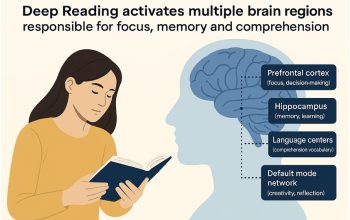In the dynamic field of data science, coding skills are not just an asset—they are a necessity. Data scientists employ coding in various aspects of their work, from data extraction and cleaning to building complex machine learning models. This article explores how coding skills are integral to the role of a data scientist, the specific tasks that require coding, and why a data science course or a data science course in Mumbai can be pivotal in mastering these essential skills.
The Role of Coding in Data Science
Data science involves the extraction, analysis, and interpretation of vast amounts of data. To perform these tasks efficiently, data scientists rely heavily on coding. Data scientists can use coding to handle big datasets, automate monotonous processes, and create complex algorithms that would be hard to manage manually.
Comprehensive data science courses usually place a strong emphasis on the value of coding and include instruction in commonly used industrial languages like R and Python. Aspiring data scientists may construct machine learning models, manage data, and execute statistical analyses with the practical skills they gain in these courses.
Data Extraction and Cleaning
One of the first steps in any data science project is data extraction and cleaning. Data often comes from various sources and formats, and it is rarely in a perfect state for analysis. Data scientists use coding to automate the extraction process, ensuring that data is gathered efficiently from different databases, APIs, and flat files.
Once the data is collected, the next step is cleaning it. This involves handling missing values, correcting inconsistencies, and transforming the data into a usable format. Python, with its libraries like Pandas and NumPy, is particularly useful for these tasks. A data science course in Mumbai that includes training in these libraries can help students learn how to write scripts that automate data cleaning processes, saving significant time and effort.
Exploratory Data Analysis (EDA)
Exploratory Data Analysis (EDA) is a crucial phase where data scientists analyze datasets to summarize their main characteristics, often using visual methods. EDA helps in understanding the data, uncovering patterns, and identifying anomalies. Coding skills are essential in this phase to create visualizations and generate descriptive statistics.
Libraries such as Matplotlib, Seaborn, and Plotly in Python are commonly used for data visualization. A well-structured data science course will cover these tools, teaching students how to create meaningful graphs and charts that can reveal insights about the data. By coding these visualizations, data scientists can customize their analyses to highlight specific aspects of the data relevant to their hypotheses.
Building Machine Learning Models
Data science is centered on machine learning. Coding is used by data scientists to create, test, and refine machine learning models. In this procedure, suitable algorithms are chosen, parameters are adjusted, and model performance is evaluated. With packages like TensorFlow, Scikit-learn, and Keras, Python offers a solid platform for creating machine learning models.
In a data science course in Mumbai, students learn how to implement these models through coding. They gain hands-on experience in writing scripts to preprocess data, train models, and validate results. This practical experience is crucial for understanding the nuances of machine learning and being able to apply these techniques to real-world problems.
Data Analysis and Interpretation
Beyond building models, data scientists need to analyze and interpret the results. Coding allows them to perform detailed analyses and generate reports that communicate their findings effectively. This often involves running statistical tests, creating dashboards, and summarizing insights in a clear and actionable way.
Python’s versatility and extensive library support make it ideal for these tasks. For example, libraries like Statsmodels and SciPy are used for statistical analysis, while tools like Jupyter Notebooks allow data scientists to document their analyses and share them with stakeholders. Students can acquire the abilities required to properly evaluate and communicate their findings by enrolling in a data science course that places a strong emphasis on these tools.
Automation and Efficiency
Coding has several benefits, one of which is its capacity to automate monotonous operations, thereby increasing productivity and efficiency. Frequently, data scientists use scripts to automate procedures related to data cleansing, analysis, and collecting. Automation ensures that analyses are more dependable by saving time and lowering the possibility of mistakes.
Students who enroll in a thorough data science course in Mumbai will learn how to automate their procedures and build effective programming. This entails mastering coding best practices, such modularity and reusability, which are crucial for creating scripts that are scalable and maintainable.
Real-World Applications of Coding in Data Science
Coding skills are applied in various real-world scenarios across different industries. In finance, data scientists use coding to build predictive models for stock prices, assess risk, and detect fraudulent transactions. In healthcare, coding is used to analyze patient data, predict disease outbreaks, and optimize treatment plans. Retail companies leverage coding to analyze customer behavior, personalize marketing strategies, and manage inventory effectively.
A data science course that includes industry-specific case studies can provide students with practical insights into how coding is used in different sectors. This real-world context helps students understand the relevance of their skills and prepares them to tackle industry-specific challenges.
Keeping Up with Technological Advancements
The field of data science is continually evolving, with new tools and technologies emerging regularly. Coding skills enable data scientists to adapt to these changes and incorporate new techniques into their workflows. Keeping abreast of the most recent developments is essential to preserving your competitive advantage in the industry.
A data science course in Mumbai that focuses on continuous learning and professional development can help students stay abreast of new developments. By learning how to code, data scientists can quickly adopt new tools and methodologies, ensuring that they remain at the forefront of the industry.
Conclusion
Coding skills are fundamental to the role of a data scientist. From data extraction and cleaning to building machine learning models and automating workflows, coding is integral to every aspect of data science. A comprehensive data science course or a data science course in Mumbai that emphasizes coding can equip aspiring data scientists with the practical skills needed to succeed in this dynamic field.
By mastering coding, data scientists can unlock the full potential of their data, drive meaningful insights, and make informed decisions that can transform businesses and industries. One cannot stress the value of coding in data science, and one of the most important steps in launching a lucrative career in this fascinating and quickly expanding subject is to enroll in a top-notch data science school.
Business Name: ExcelR- Data Science, Data Analytics, Business Analyst Course Training Mumbai
Address: Unit no. 302, 03rd Floor, Ashok Premises, Old Nagardas Rd, Nicolas Wadi Rd, Mogra Village, Gundavali Gaothan, Andheri E, Mumbai, Maharashtra 400069, Phone: 09108238354, Email: enquiry@excelr.com.



